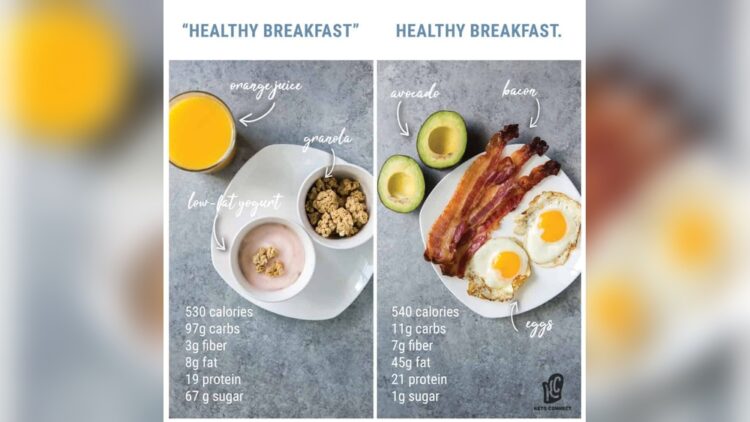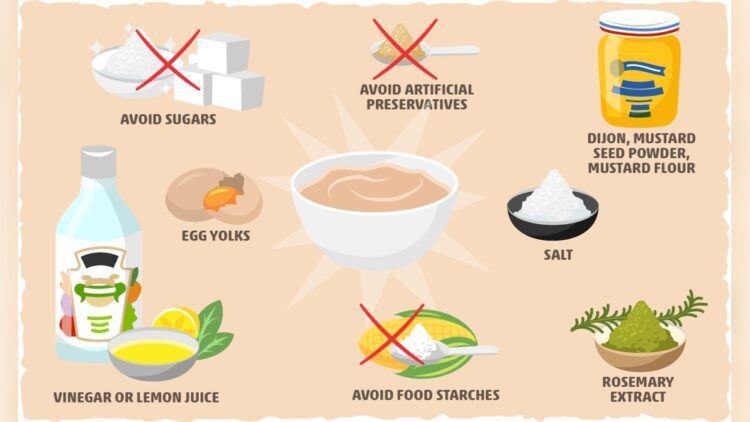Weight loss is important because it promotes a healthier lifestyle and improves overall well-being. It boosts self-confidence, reduces the risk of chronic diseases, and increases physical fitness, making it a significant goal for many individuals.
Achieving weight loss can improve mental health, enhance energy levels, and improve quality of life. To reach weight loss goals, individuals often adopt healthy eating habits, engage in regular exercise, and make long-term lifestyle changes. With dedication and consistency, weight loss can lead to numerous physical and psychological benefits, making it a worthwhile endeavor.
The Science Behind Weight Loss
Losing weight can be a challenging journey, but understanding the underlying science can help make the process more manageable. By exploring the science behind weight loss, we can gain valuable insights into how our bodies work and how we can optimize our efforts for success.
Metabolism And Caloric Intake
Metabolism plays a crucial role in weight loss. It is the complex process by which the body converts food and drinks into energy. Our metabolic rate determines the number of calories we burn at rest and during physical activity. Understanding this link between metabolism and weight loss is key to achieving our desired results.
Our basal metabolic rate (BMR) refers to the number of calories required to keep our bodies functioning at rest. This includes vital functions like breathing, circulating blood, and regulating body temperature. Even when we are not physically active, our bodies require energy to sustain these fundamental processes.
Reducing calorie intake below our BMR can initiate weight loss as our bodies tap into existing fat stores for energy. This calorie deficit leads to a negative energy balance, causing our bodies to burn fat for fuel. However, excessively low-calorie diets can be counterproductive, as our bodies may enter starvation mode, slowing down our metabolism to conserve energy.
By maintaining a moderate calorie deficit below our BMR and engaging in regular physical activity, we can achieve a healthy and sustainable rate of weight loss.
Importance Of Exercise
In addition to a balanced diet, exercise plays a vital role in the weight loss journey. Regular physical activity not only burns calories but also helps maintain muscle mass and boosts metabolism.
Engaging in aerobic exercises such as running, swimming, or cycling increases our heart rate and breathing rate, leading to increased calorie burn. These exercises also improve cardiovascular health, strengthen our muscles, and enhance overall fitness.
Incorporating strength training exercises into our routine is equally essential. Building lean muscle mass helps increase our basal metabolic rate, leading to more calories burned even at rest. Strength training also improves body composition by reducing fat and enhancing muscle definition.
Combining aerobic exercises with strength training creates a comprehensive weight loss strategy. Aim for a balance of cardiovascular activities and resistance training to optimize calorie burn and achieve long-term weight loss goals.
Unlocking Your Mindset For Success
When it comes to weight loss, achieving success isn’t just about following a strict diet and exercise routine; it also requires unlocking the power of your mindset. Your thoughts, beliefs, and attitudes play a crucial role in your weight loss journey. By adopting a positive mindset and addressing any psychological barriers, you can set yourself up for long-term success. In this article, we will explore two key aspects of unlocking your mindset for weight loss success: goal setting and motivation, and overcoming psychological barriers.
Goal Setting And Motivation
Setting goals is essential for weight loss success. When you clearly define your goals, you give yourself something tangible to work towards. Whether your goal is to lose a certain number of pounds, fit into a specific clothing size, or improve your overall health, having a specific and measurable target can provide you with the motivation and focus needed to stay on track.
To effectively set goals for weight loss, follow these steps:
- Define your goal: Be specific about what you want to achieve.
- Make it measurable: Set a clear metric to track your progress.
- Set a deadline: Establish a timeframe for reaching your goal.
- Break it down: Divide your goal into smaller, achievable milestones.
- Create an action plan: Identify the steps you need to take to reach each milestone.
Motivation is crucial in staying dedicated to your weight loss journey. Find what inspires you and use it as a source of motivation. Whether it’s visualizing the body you desire, envisioning the many health benefits of weight loss, or finding support from friends and family, tap into your sources of motivation regularly to keep yourself on track.
Overcoming Psychological Barriers
Psychological barriers are often the hidden obstacles that hinder weight loss progress. These barriers can include self-doubt, fear of failure, emotional eating, and negative self-talk. By addressing and overcoming these psychological barriers, you can regain control of your mindset and move closer to your weight loss goals.
Here are some strategies to help you overcome psychological barriers:
- Practice positive self-talk: Replace negative thoughts with positive affirmations.
- Seek support: Surround yourself with friends, family, or a weight loss support group.
- Challenge your beliefs: Identify any limiting beliefs and challenge them with evidence to the contrary.
- Manage emotions: Find healthy ways to cope with stress, anxiety, and emotional eating.
- Reward yourself: Celebrate your small victories to boost your confidence and motivation.
By recognizing and addressing these psychological barriers, you can unlock your mindset, create a positive relationship with food and exercise, and ultimately achieve long-term weight loss success.
Nutrition: Fueling Your Weight Loss
Nutrition plays a vital role in any weight loss journey. In order to successfully shed those extra pounds and achieve your weight loss goals, you need to fuel your body with the right nutrients. A well-balanced diet and portion control, as well as choosing the right macronutrients, are key factors to consider. Let’s explore each of these components in detail to help you make informed decisions about your nutrition.
Balanced Diet And Portion Control
A balanced diet is the foundation of any successful weight loss plan. It involves consuming a variety of foods from different food groups in appropriate proportions. By including a mix of fruits, vegetables, whole grains, lean proteins, and healthy fats in your diet, you provide your body with the necessary nutrients while keeping calorie intake in check. This helps prevent nutrient deficiencies and promotes overall health.
Portion control goes hand in hand with a balanced diet. It is about understanding how much food your body needs and serving yourself accordingly. By keeping your portions in check, you not only regulate calorie intake but also train your body to recognize appropriate portion sizes, which can aid in weight loss and weight maintenance.
Choosing The Right Macronutrients
Macronutrients, consisting of carbohydrates, proteins, and fats, are the main sources of energy for your body. Choosing the right macronutrients can optimize your weight loss efforts. Here is a breakdown of each:
- Carbohydrates: Carbs are the body’s primary source of energy. Opt for complex carbohydrates like whole grains, legumes, and starchy vegetables as they provide sustained energy and are packed with fiber, vitamins, and minerals. Simple carbohydrates, found in sugary drinks and processed snacks, should be limited as they contribute to weight gain.
- Proteins: Proteins are essential for building and repairing body tissues, as well as supporting muscle growth. Include lean sources of protein such as chicken, turkey, fish, tofu, and legumes in your diet. They not only keep you feeling fuller for longer but also help maintain muscle mass during weight loss.
- Fats: Contrary to popular belief, consuming healthy fats is crucial for weight loss. Unsaturated fats found in avocados, nuts, seeds, and olive oil provide important nutrients and promote satiety. However, it is important to be mindful of portion sizes as fats are higher in calories.
By striking a balance between these macronutrients and tailoring them to your individual needs, you can create a personalized nutrition plan that supports your weight loss journey.
Effective Strategies For Weight Loss
Effective weight loss strategies are essential to achieving your desired weight. Discover proven techniques that focus on healthy eating, regular exercise, and lifestyle changes for sustainable results.
Losing weight can be a challenging journey, but with the right strategies, it is achievable. In this section, we will explore three effective strategies that can help you reach your weight loss goals: Intermittent Fasting, Meal Prepping and Planning, and Portion Control.
Intermittent Fasting
Intermittent fasting has gained popularity as an effective weight loss strategy. It involves cycling between periods of fasting and eating. This method helps to restrict calorie intake and improve metabolic health.
Intermittent fasting can take various forms, such as the 16/8 method, which involves fasting for 16 hours and restricting your eating window to 8 hours. Another approach is the 5:2 method, where you eat normally for five days and restrict calorie intake to 500-600 calories for two non-consecutive days.
Meal Prepping And Planning
Meal prepping and planning is a powerful strategy to stay on track with your weight loss goals. By preparing your meals in advance, you can ensure that you have healthy options readily available, reduce the temptation for unhealthy choices, and control portion sizes.
To get started with meal prepping, set aside a specific day each week to plan and prepare your meals. Choose a variety of nutritious ingredients and create balanced meals. Divide them into individual portions and store them in containers, ready to grab and go throughout the week.
Portion Control
Portion control plays a crucial role in weight loss. By being mindful of the quantity of food you eat, you can create a calorie deficit and promote weight loss. Rather than relying on strict diets, portion control allows you to enjoy a wide range of foods in moderation.
One simple way to control portions is by using smaller plates and bowls, which tricks your brain into feeling satisfied with less food. Additionally, consider measuring your food using tools like measuring cups, spoons, or food scales to ensure accurate portion sizes.
Adopting these effective strategies—intermittent fasting, meal prepping and planning, and portion control—can accelerate your weight loss journey. Incorporate them into your lifestyle and make consistent progress towards achieving your weight loss goals.
Sustainable Lifestyle Changes
When it comes to weight loss, sustainable lifestyle changes are the key to long-term success. Fad diets and quick fixes may provide temporary results, but they are often difficult to maintain in the long run. Sustainable lifestyle changes, on the other hand, focus on creating healthy habits and maintaining long-term results. By making small, manageable changes to your daily routine, you can achieve weight loss that lasts.
Creating Healthy Habits
Making healthy habits a part of your daily life is essential for sustainable weight loss. By adopting new behaviors and routines, you can create a foundation for long-term success. Here are some strategies to help you create healthy habits:
- Eating a balanced diet that includes a variety of fruits, vegetables, lean proteins, and whole grains
- Drinking plenty of water to stay hydrated and support your body’s natural functions
- Incorporating regular physical activity into your routine, such as walking, jogging, or attending fitness classes
- Getting enough sleep to ensure your body can properly recharge and function optimally
- Managing stress through techniques like mindfulness, meditation, or engaging in hobbies you enjoy
Making these healthy habits a priority in your daily life can have a significant impact on your weight loss journey. Not only will they help you shed pounds, but they will also enhance your overall well-being.
Maintaining Long-term Results
Once you have achieved your weight loss goals, it’s important to focus on maintaining your results. Here are some strategies to help you maintain long-term weight loss:
- Continuing to make healthy food choices by sticking to your balanced diet and avoiding excessive indulgence
- Staying active through regular exercise and finding activities you enjoy to keep you motivated and engaged
- Tracking your progress by monitoring your weight, measurements, and overall health to stay accountable
- Seeking support from friends, family, or a support group to stay motivated and share your weight loss journey
- Continuously reassessing your habits and making adjustments as needed to ensure continued success
Maintaining long-term results requires dedication and consistency. By incorporating these strategies into your daily life, you can prevent weight regain and enjoy the benefits of your weight loss journey for years to come.
Frequently Asked Questions Of Weight Loss Why
How Does Weight Loss Affect Your Overall Health?
Weight loss can have numerous positive impacts on your overall health, including reducing the risk of chronic diseases, improving energy levels, and boosting self-confidence.
What Are Some Effective Strategies For Long-term Weight Loss?
Some effective strategies for long-term weight loss include setting achievable goals, adopting a balanced and nutritious diet, staying active with regular exercise, and seeking support from a healthcare professional or weight loss program.
Can Weight Loss Benefit Mental Health?
Yes, weight loss can benefit mental health by improving self-esteem, reducing stress levels, and boosting mood. It can also enhance body image and promote a positive relationship with food and physical activity.
Conclusion
It’s clear that weight loss is a complex journey that goes beyond just physical appearance. With numerous health benefits and the potential to improve overall well-being, it’s crucial to approach weight loss with a holistic mindset. By focusing on balanced nutrition, incorporating regular exercise, and making lifestyle changes, we can achieve sustainable results.
Remember, everyone’s weight loss journey is unique, so finding what works for you is key. Start your transformation today and embrace a healthier, happier you!
{ “@context”: “https://schema.org”, “@type”: “FAQPage”, “mainEntity”: [ { “@type”: “Question”, “name”: “How does weight loss affect your overall health?”, “acceptedAnswer”: { “@type”: “Answer”, “text”: “Weight loss can have numerous positive impacts on your overall health, including reducing the risk of chronic diseases, improving energy levels, and boosting self-confidence.” } } , { “@type”: “Question”, “name”: “What are some effective strategies for long-term weight loss?”, “acceptedAnswer”: { “@type”: “Answer”, “text”: “Some effective strategies for long-term weight loss include setting achievable goals, adopting a balanced and nutritious diet, staying active with regular exercise, and seeking support from a healthcare professional or weight loss program.” } } , { “@type”: “Question”, “name”: “Can weight loss benefit mental health?”, “acceptedAnswer”: { “@type”: “Answer”, “text”: “Yes, weight loss can benefit mental health by improving self-esteem, reducing stress levels, and boosting mood. It can also enhance body image and promote a positive relationship with food and physical activity.” } } ] }









Leave a Reply